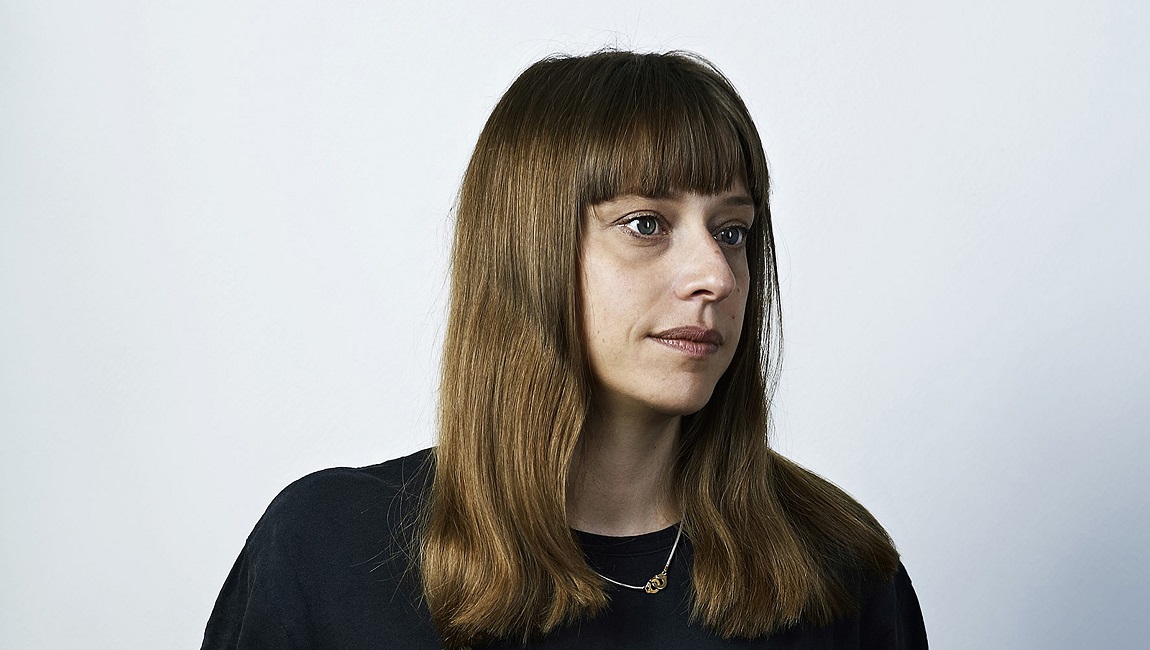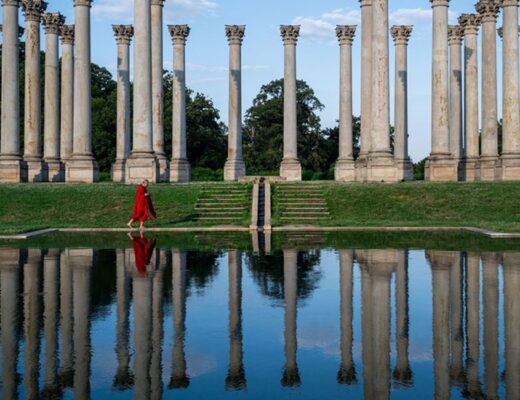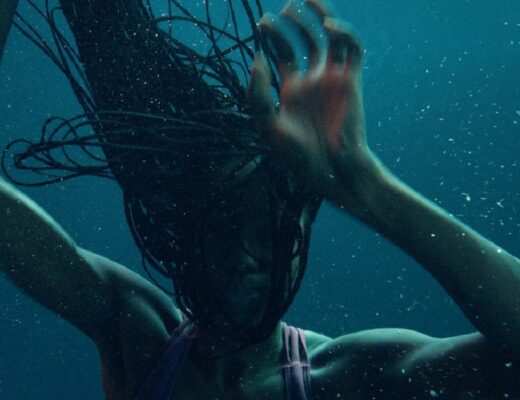Tracing a labyrinth of half-recalled memories, Revoir Paris, the fourth feature film from director Alice Winocour, explores violence while also turning its head from it. A lauded performance by Virginie Efira as Mia anchors a film that studies the complexities of PTSD via the absences that memory leaves. Not a one-hander, however, Revoir Paris uses an ensemble to dig deep into the eponymous city’s layers, constructing a portrait of its protagonist’s fragmented memory. A perfect pairing with Winocour’s earlier effort Disorder, an anxiety-driven thriller about a veteran with PTSD working as a bodyguard, Revoir Paris films its violence at ground level, and reveals its aftermath as it’s able to be processed. We spoke to filmmaker Alice Winocour about the writing process, how to pull back from tension, and the reconstruction of memory.
What drew you to this particular setting for Revoir Paris?
I think, to me, when you write a story, your direction will be more like an unconscious process. Definitely, for [Revoir Paris], it comes from a personal story, as my brother was caught in the Bataclan attack in 2015. So it was a long time ago, but then I think I needed to do it. It’s a fiction film, of course — it’s not about the attack itself. It’s more about the consequences of a traumatic experience. I directed a movie, Proxima, after the events, and when I got back to Paris, I felt I needed to do [this] film.
Were there specific communities you looked to when creating the support system of survivors depicted in this film?
I met a lot of survivors and victims of the attack that inspired this, as well as others. I met all these people with my brother, and this community inspired the idea of the film, that you can’t reconstruct yourself unless [the process] is collective.
Could the story you wanted to tell have existed for you in any other city?
I think of course the story could take place in a different country. But Paris is its own character in the movie — it’s a film about the chaos of that city.
Given that some of the events may bear a resemblance to the past, did you have any issues when shooting on location?
Because it was not a historical reconstruction, it was easier. But my brother made me understand it was impossible to stage a real attack for the first few minutes of the film. What was difficult is that we shot the film during the trial of the Bataclan attack, so it was fresh again in the city. When we had the candles in front of the restaurant, we put up big signs saying “This is filming” for people to know it wasn’t a real attack or memorial.
How do you decide when to cut a memory and let things be forgotten in a grander puzzle, rather than let a larger flashback play out?
It’s true, it’s fragments of her memory, and I myself built the film on fragments of how my own memory works. I was obsessed with the idea of fragmentation; these sounds [are] out of order because memory is complex. Sound is very important in this process of abstraction; when you suffer from post-traumatic amnesia, it’s sometimes the sound that’s still in your head. For example, the birthday candles crackling or the sound of the rain — these details to me were more important than images. Those sounds came before the image, and brought it [forth].
How do you extract a performance from an actor that is not emotionally linear but still compelling?
It was difficult because this character was a kind of naked soul. She has nobody. People suffering from PTSD describe symptoms of not being in their own body, of it feeling alien to you, [like] you floating a bit. Like you’re in limbo, and have to go into your body again. The process of the shoot for us, the love scene, with Vincent, it’s like a way to get her back in her own body. At the beginning, she’s like a kind of ghost.
What was your process developing the ensemble of others at the restaurant whose experiences are then contrasted?
I tried to create a picture of Paris, this cosmopolitan city. And I thought that because it’s an investigation into her own memory, and also a real one to find the man’s hands that she remembers, I wanted her to go through all the layers of French society, from this Senegalese cook to the daughter who had lost her parents in the attack. To me, she’s an essential part of this. I was also rewriting the script as I cast these characters, and it became a choral film. It seemed a bit bleak, but that’s how it happened, and it’s a collective, national trauma. And so that point of view had to be not only the path of a single character.
How much do you find you end up rewriting a character around the actor?
It’s never the same! For example, the character of Nastya Golubeva, who’s the daughter of director Leos Carax… I did a lot of rehearsals with her every weekend. It was her first time really in a film that was not her father’s. And she had a lot of grace and innocence that worked its way into the character.
Sound tends to lead to emotional moments in your films before image, in a layered soundscape that feels more like horror or sci-fi genre films than it does naturalistic drama. That feels especially true in Revoir Paris. Do you see yourself making a film [in the future] that leans into that?
Actually, I’m writing a horror movie at the moment! It comes from my childhood, as cinema was something I experienced before my teenage years, watching the same movie several times with my brother. We were very obsessive, and I would watch a lot of Hitchcock films, movies like Psycho that talk more to your nervous system than directly to your brain. And cinema has to be a really physical experience, and to me that [comes from] sound design. I’m blind in one eye, always have been. So it’s super important for me. I have a discussion about the sound before the image sometimes, and in a film about memory, sound is most important to me. I like a close-up in the sound, sometimes louder and not fitting with the image. Because [Revoir Paris] is a mental film, investigating [Mia’s] own memory and constructing corridors within her memory to explore. I really like the idea that the sound [like with the birthday candles] can be [integrated] unnaturally to add the feeling of a dream; or more accurately, a nightmare.
This interview has been edited for length and clarity.
Published as part of InRO Weekly — Volume 1, Issue 25.
Enjoy our content? Want early access to features, interviews, and more? Support us on Patreon!







